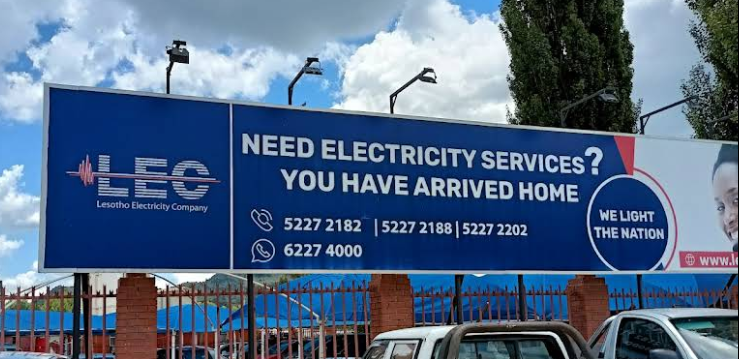Theko Tlebere
This week’s lively parliamentary debates surrounding the Lesotho Electricity Company (LEC) and the role of Principal Secretaries (PSs) in managing state-owned enterprises (SOEs) have highlighted a crucial question that cannot be addressed solely through political sentiment: Who is ultimately responsible for the governance and accountability of public entities? While it is commendable that the Public Accounts Committee (PAC) is diligently scrutinising the financial and governance practices of institutions like LEC, this moment necessitates a broader public understanding of the legal framework and governance norms that dictate the operation of state-owned utilities in a constitutional democracy.
The first point I want to make very clear from the beginning is that the law is clear, oversight is not management. The Public Financial Management and Accountability Act (PFMAA) 2011 clearly defines the role of a Principal Secretary. As Chief Accounting Officers for their ministries (Section 5), PSs are responsible for ensuring that budget appropriations and transfers align with national policies. However, they do not possess operational control over SOEs. The PFMAA, under Section 40, designates the Chief Executive Officer (CEO) of a public enterprise such as the Managing Director (MD) of LEC with the responsibility for day-to-day management, internal controls, financial reporting, and overall operational efficiency of the enterprise.
This separation of roles establishes necessary checks and balances between policy formulation, the responsibility of ministries, and operational execution, managed by the board and management of the enterprise. When PSs exert managerial influence — whether formally or informally they undermine this constitutional and statutory framework, eroding institutional autonomy and exposing the enterprise to financial, legal, and operational risks. This issue transcends mere semantics; it reflects a fundamental concern regarding structural integrity in governance.
The second equally important point that I should make is that energy governance requires clarity, not conflict. And why is that? Lesotho’s Energy Policy 2015–2025 envisions a professional, efficient, and transparent energy sector that balances public interest with market-based principles. The policy encourages increased private sector involvement, the independence of regulators such as the Lesotho Electricity and Water Authority (LEWA), and the establishment of predictable tariff frameworks to ensure sustainability and affordability. This model underlies the recent LEWA approved energy and maximum demand charges for 2024–2026, which were assessed on economic and technical grounds rather than being dictated by political motives.
Interference in the operations of a state utility by a PS, particularly when personal or political tensions are present, undermines these broader policy objectives. Such interference threatens to dismantle corporate governance structures, create divisions among staff, delay strategic projects, and ultimately discredit the utility’s capacity to deliver. The misalignment between strategic direction and political oversight leads to dysfunction at the core of national infrastructure planning.
When the relationship between a PS and a Managing Director deteriorates into animosity as appears to be the case with LEC, the result is institutional paralysis. Strategic plans are stalled or abandoned, internal controls weaken under politicised pressures, board members may become complicit or ineffective, and the organisation risks becoming a hollow shell bureaucratic in appearance but lacking functional power or strategic direction. This dysfunction has tangible consequences for the ordinary Mosotho, impacting the rural woman waiting for electricity to power her small sewing business, the urban student struggling to study through evening blackouts, the clinic unable to refrigerate vaccines, and the factory owner calculating economic losses due to unreliable supply. When institutions fail, it is always the most vulnerable who suffer the most.
Let institutions breathe and be held accountable, and how so? PAC is diligently fulfilling its constitutional mandate by questioning irregularities and demanding answers. However, no parliamentary committee can replace a culture that respects legal boundaries. The PAC serves as an oversight mechanism, not an operational fixer. Its role is to ensure transparency, not to mediate internal power struggles stemming from poor governance practices. Therefore, it is essential that our institutions are allowed to breathe, free from the suffocating grip of micromanagement and informal power plays. We must prioritise strengthening State-Owned Enterprise (SOE) boards through professional, non-partisan appointments that reflect merit and experience.
We must protect the independence of Managing Directors and their executive teams, safeguarding them from political harassment while holding them fully accountable for their performance. Principal Secretaries should limit their involvement to financial oversight and policy coordination, as the law requires, rather than attempting to steer from behind the scenes. Furthermore, whistle-blowers and professionals who resist undue interference must be protected, not punished. We need a culture that upholds the rule of law, not a system that rewards silent compliance and penalises principled resistance.
I need to stop here for now, therefore, I feel like I need to conclude by reminding all those in power now that governance is not a tug-of-war. The Lesotho Electricity Company (LEC) is not a personal fiefdom, nor is it a political prize. It is a national asset, one that belongs to every citizen of Lesotho. Its role in powering development, enabling livelihoods, and securing future investments cannot be overstated. When Principal Secretaries and Managing Directors turn their offices into battlegrounds, it is not egos that clash, it is the nation that suffers.
Blackouts and tariff hikes are not isolated technical failures; they are often symptoms of internal dysfunction caused by blurred lines of power. We must stop viewing state-owned enterprises as mere extensions of ministries and start recognising them as professional institutions that require strategic leadership, operational independence, and robust public accountability. The future of energy in Lesotho and indeed the viability of all SOEs depends not on political dominance but on legal discipline and institutional integrity.
Either we allow our institutions to function, or we prepare to manage the collapse that will inevitably occur when politics take precedence over the law. The Future is NOW!
Summary
- While it is commendable that the Public Accounts Committee (PAC) is diligently scrutinising the financial and governance practices of institutions like LEC, this moment necessitates a broader public understanding of the legal framework and governance norms that dictate the operation of state-owned utilities in a constitutional democracy.
- The PFMAA, under Section 40, designates the Chief Executive Officer (CEO) of a public enterprise such as the Managing Director (MD) of LEC with the responsibility for day-to-day management, internal controls, financial reporting, and overall operational efficiency of the enterprise.
- When the relationship between a PS and a Managing Director deteriorates into animosity as appears to be the case with LEC, the result is institutional paralysis.

Your Trusted Source for News and Insights in Lesotho!
At Newsday Media, we are passionate about delivering accurate, timely, and engaging news and multimedia content to our diverse audience. Founded with the vision of revolutionizing the media landscape in Lesotho, we have grown into a leading hybrid media company that blends traditional journalism with innovative digital platforms.










